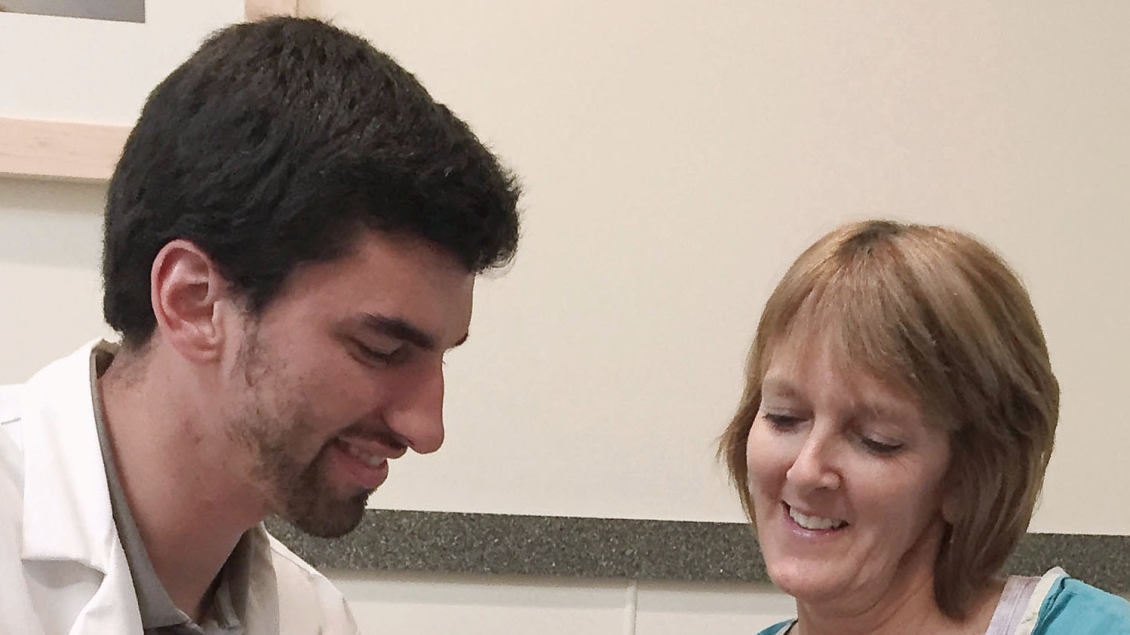
Here are highlights from some of the major initiatives taking place in our department network as well as through collaborations with other institutions and organizations. A regular feature of this space will be to highlight quality improvement initiatives. We are fortunate to have a great team committed to advancing the safety and efficacy of radiation therapy.
One way that we continuously strive to improve the quality of cancer care for patients is through the Michigan Radiation Oncology Quality Consortium (MROQC). In this first-of-its-kind collaborative quality initiative (CQI), MROQC has created a comprehensive clinical and physics data registry of patients receiving radiation treatment for breast, lung, and prostate cancers and bone metastases.
The registry is maintained by the MROQC Coordinating Center (housed at the North Campus Research Complex, which is led by members of our department) and includes both patient-reported outcomes and physician assessments of toxicity as well as data on radiation treatment delivery and dose. MROQC collects the doses for targets and organs-at-risk as well as for the detail plan information (DICOM) files, which can then be connected to information on both physician and patient-reported outcomes. Support for MROQC comes from Blue Cross Blue Shield of Michigan (BCBSM) and Blue Care Network as part of the BCBSM Value Partnerships Program.
It should be common for clinics to have ability to rapidly assemble datasets to address practice quality improvement (PQI), routine clinical translational research (CTR) and other arising questions to aid patients in our clinics today. We enter a wealth of information into electronic health records (EHR) and radiation oncology information systems (ROIS) on a daily basis. It should be rather than the exception, that we can seamlessly use this information about past experience to help today’s patients.
To reach that goal we have to overcome technical, cultural, and clinical process barriers. “Data Farming” is a more realistic and functional conceptualization for shaping expectations of the type of work and commitment needed to construct reliable databases supporting practice quality improvement and clinical translational research. The objective is to harvest large volumes of data that we could use as raw materials for analyzing health care patterns and outcomes. Like the farmer who considers the implication of every part of the sowing, growing and harvesting process on the yield of high quality grain, we need to examine how best to use the tools available in our electronic systems to increase the volume of actionable data that is readily available. High quality data sources rarely exist independent of our efforts, just waiting to be found, or mined. They result from intent, and dedication of resources to grow these data sources and curate (weed out) misleading information.
The RadOnc 3D Core Lab accelerates the development and manufacture of patient-optimized treatment devices and custom components for basic and translational research. Our in-house 3D device design and manufacturing service is driving innovation in the clinic and laboratories. While digital 3D modeling accelerates prototype development, stereolithographic (SLA) printing with medically-approved resins produces high-quality, patient-specific devices on-demand. Examples of current projects include:
- Medical procedures (brachytherapy applicators, boluses, lung blocks, etc..)
- Quality assessment tools (phantoms, ISO limits, etc..)
- Specialty laboratory apparatus
Each component is manufactured with resins optimized for its specific application. With rapid 3D prototyping, the path from inspiration to application has never been shorter!